It is a common misconception that you can feed almost anything to your backyard poultry. This is not true, especially for turkeys. Did you know that there are some foods you should not feed your turkeys? You can get some excellent advice on raising turkeys in this book but this article is going to cover foods they shouldn’t eat in detail.
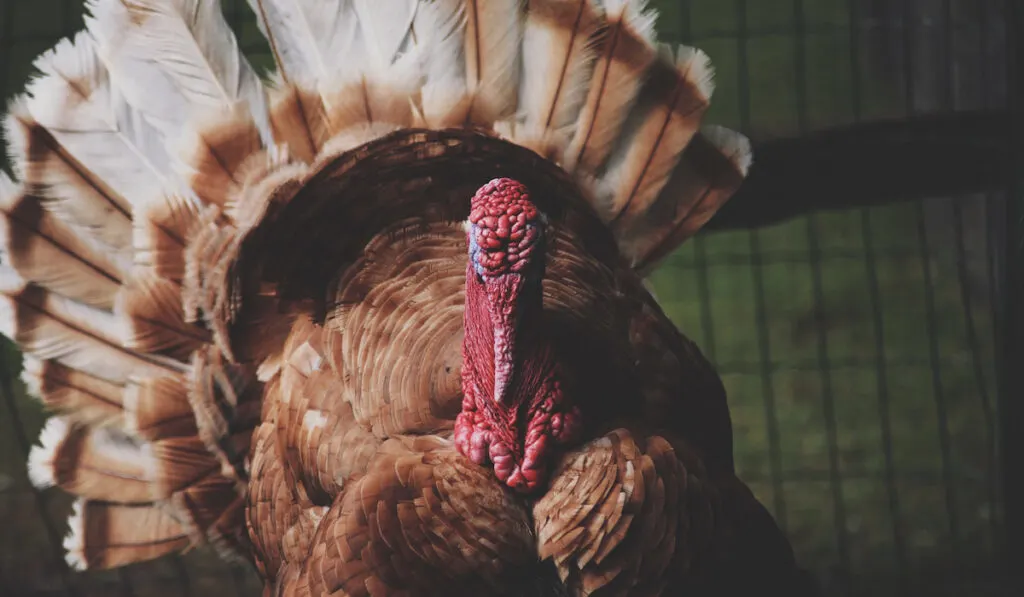
What not to feed turkeys? In order for turkeys to thrive in a backyard environment, they need to be fed food that meets their nutritional needs. Some things that are okay for humans to eat should never be fed to turkeys, no matter what. It is important to know which foods to avoid to keep your rafter of turkeys healthy.
When raising turkeys, you should be aware of which foods you should keep away from your coop. Knowledge is the key to raising a healthy rafter of turkeys, even if you lack experience. The following information will help you understand the nutritional needs of your turkeys and what foods you should avoid feeding them at all costs.
Table of Contents
Understanding the Nutritional Needs of Turkeys
The first thing you should keep in mind is that turkeys are not the same as chickens, therefore their nutritional requirements are not the same either.
Turkeys on average grow much larger than a typical chicken and they require far more protein and supplements than their counterparts.
Young turkeys need to eat feeds that contain around 28 percent protein in order to maintain their natural growth rates while young chickens do not. Over time, their need for this high amount protein will decrease, however, their vitamin needs will remain the same.
Turkeys also require high levels of vitamin A and D, as well as moderate amounts of calcium. Feeds that are designed specifically for turkeys or wild birds tend to offer the nutritional benefits that turkeys need to thrive. (source)
Foods You Should Never Feed to Turkeys
While feeding turkeys may seem like a simple concept at first, it is slightly more complex. Farm owners often utilize home-grown foods to supplement the feed for some of their animals. It is important that all turkey owners know the specific foods that should be off-limits for their turkeys. The following is a list of the main foods that you should not feed your turkeys.
Low-quality chicken feed
Turkeys require more protein than chickens do, therefore, a simple chicken feed will not contain the nutrition that a turkey needs. It will not harm them immediately, but it will cause them to not grow and flourish to their full potential.
If you have chickens and turkeys together, you should feed them all a turkey feed or a gamebird feed. Either one will be healthy for the chickens and provide the additional nutrition needed for the turkeys.
Other Livestock Feeds
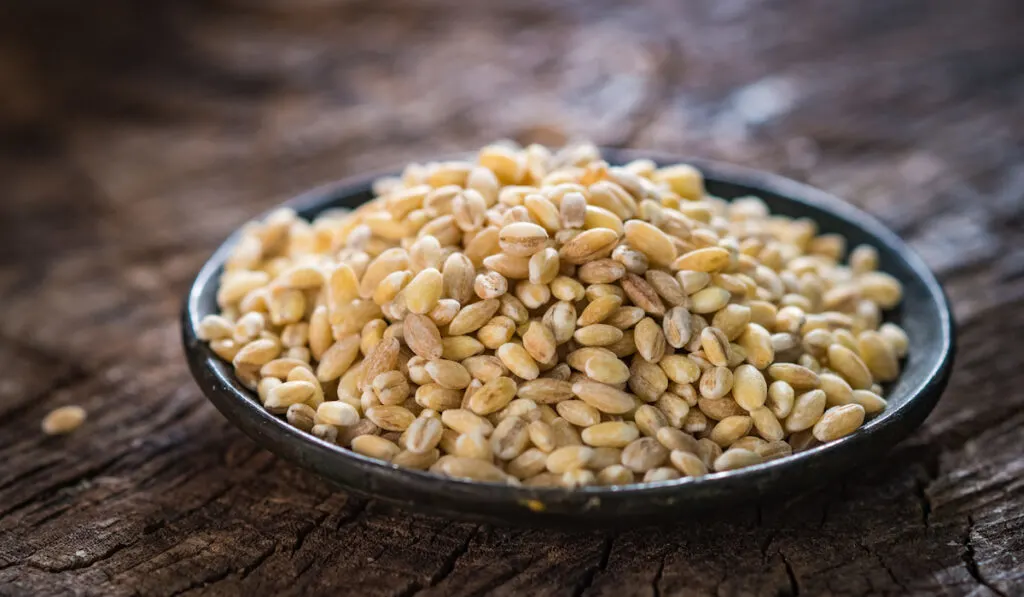
Most livestock feed has far less protein than a young turkey requires and it will not offer the appropriate amount of vitamins a turkey needs. While it probably won’t be fatal for them to eat, feeding livestock feed long-term will cause turkeys to not reach their full potential health wise.
Appropriate nutrition levels in feed is essential to a young turkey’s development, as well as an adult turkey’s energy and quality of life. (source)
Dried/Raw Beans
Beans that have not been cooked contain phytohemagglutinin. This is actually a naturally occurring insecticide and can be fatal to birds, even in small amounts. It is extremely important to never feed uncooked beans to your turkeys for any reason.
Avocados
Although avocados are extremely nutritious for us, they are not good for our turkeys. Avocados can cause a variety of issues in birds and other mammals including myocardial necrosis, the destruction of heart cells. This can lead to heart failure and can be fatal. Never feed avocado, pits or even the skin to turkeys or to any animal on your farm. (source)
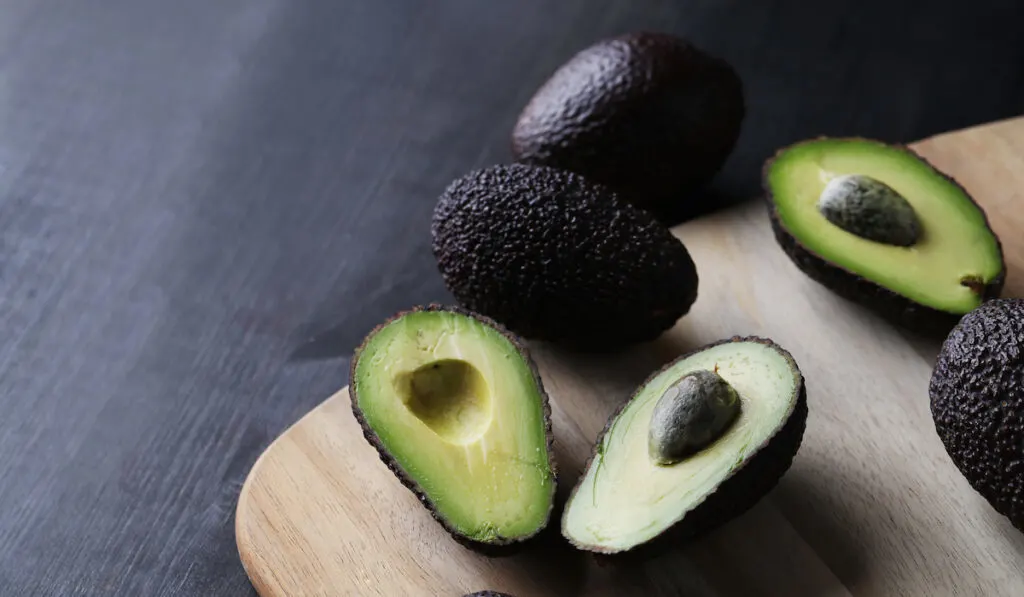
Fruit Pits and Seeds
The pits and seeds of many fruits contain small amounts of cyanide, a toxin that can be lethal to turkeys in the right dosage. The pits or seeds of peaches, apples, plums, and even cherries should never be fed to turkeys because of this reason.
Whole fruits of these types should be fed in limited quantities.
Tomato and Eggplant Leaves
Feeding your turkeys actual tomatoes or eggplants is okay. The problem lies in the leaves on the plants. They are both members of the nightshade family and can be toxic for poultry, including turkeys. You should never throw the leaves of either of these plants to your turkeys.
Raw Meat
Uncooked meat can contain bacteria that is unhealthy for turkeys. You should never feed them raw, uncooked meat because it can contain salmonella or Escherichia coli (e. coli), both can cause severe issues in turkeys.
While poultry naturally has this bacteria in their guts, adding more to the situation via raw meat can lead to illness or death. (source)
Onions
Unfortunately, onions contain thiosulphate, a toxin that can kill healthy red blood cells in a turkey. This can cause severe illness in your flock and possibly lead to death.
Keep this in mind when you are cleaning out your vegetable drawer for your turkeys. Onions are off-limits.
Processed Food
You should avoid feeding processed food created for humans to your turkeys. Processed food is not healthy for us, therefore it is definitely not healthy for your turkey.
While it probably will not prove fatal for them, feeding your turkey processed food prevents them from getting their needed nutrition. Their health will suffer over time and it is even possible that their lifespan will be shortened as a result.
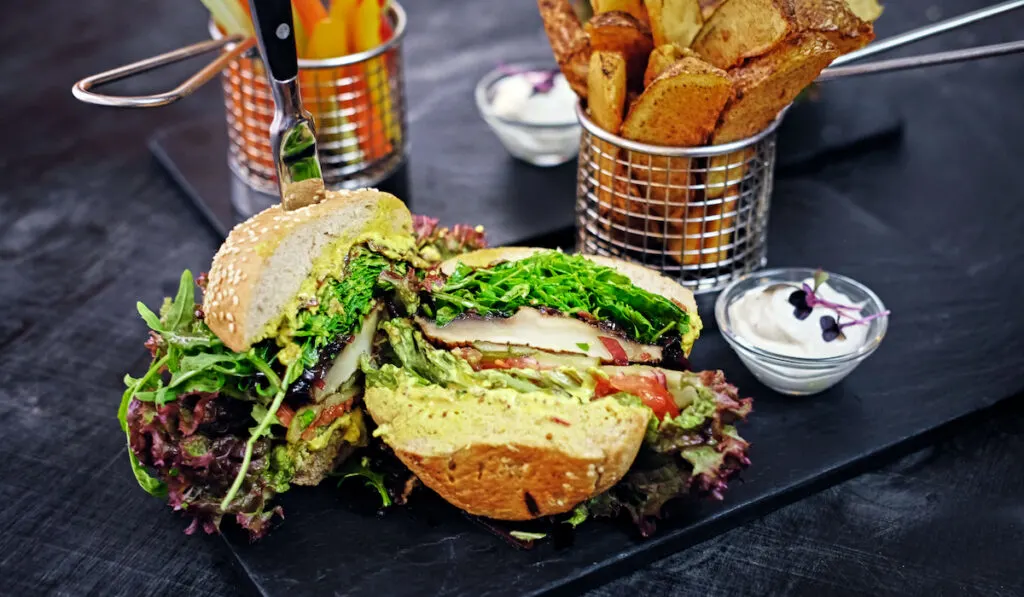
Dairy Foods
A turkey’s digestive system was not created to handle dairy products. Feeding your turkey cheese or milk could cause them to have digestive issues including diarrhea, which can lead to dehydration.
It is best to avoid feeding them dairy products altogether but, fresh cheese can be fed in small quantities to turkeys so long as there is no mold.
Chocolate
Not only does chocolate contain sugar, which is not healthy for turkeys, it offers little to no nutritional benefit for them. It also contains both caffeine and theobromine.
These are both toxic for turkeys and can cause heartrate irregularities and even death if too much is ingested. Chocolate should never be fed to turkeys.
Final Thoughts
Feeding turkeys is not as difficult as it may seem. The key is to avoid certain foods and never feed them anything that is unhealthy for humans, as that will mean it is probably unhealthy for turkeys. While some of the foods mentioned here will not kill your turkey, they can still cause them unnecessary issues. It is best to keep your rafter of turkeys away from the foods listed above and they will continue to live long healthy lives.

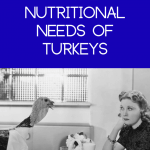
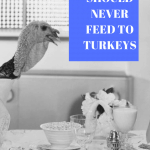

Brian mboo
Sunday 5th of September 2021
Leaves both for tomatoes and egg plants as well as cooked foods even suger foods.
Olawale lashile
Monday 9th of August 2021
what should I feed my turkey with?
Brian mboo
Sunday 5th of September 2021
@Olawale lashile,